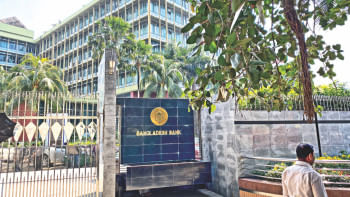Starting 2016 with Tomorrow's Bangladesh

On the first day of 2016, the Education Minister, Nurul Islam Nahid, flew balloons from the playground of Government Laboratory High School in Dhaka. As the balloons flew into oblivion, the State signaled that around 350 million textbooks were ready to be distributed free to more than 44 million boys and girls from class I to class IX. This year could not have started on a better note.
Our parents choose our schools and schooling. This choice is influenced by their income and position in the social ladder. It is also influenced by where we live. Education has many benefits. Thus parents have an incentive to invest in our education. We can expect to have at least as much education as our parents, if not more. If only life was that simple.
Education is different from other goods. Not only does education benefit the individual, the society also benefits from educated people. If income and social status of parents determine who receives and does not receive primary and secondary education, then societies will become unjust and unequal over time. Through time, societies will also end up with a large population of uneducated and unskilled youth who have the potential to contribute, but cannot do so. This is where the State has a moral obligation to play the role of a parent for the nation. It is very refreshing to know that Bangladesh shines above many countries when it comes to mass education.
In 2000, Bangladesh joined all UN members to achieve eight Millennium Development Goals (MDGs). The target was to achieve the MDGs by 2015. The second MDG was to achieve universal primary education and reduce drop outs. By 2012, primary school enrolment for girls in Bangladesh was 99.4 percent and for boys, 97.2 percent. Introducing the Primary School Certificate encouraged parents to make an effort for their children to complete primary education. This helped reduce drop outs. In 2015, UN members adopted 17 Sustainable Development Goals (SDGs). The SDGs take the MDGs one step further to ensure quality education for all and to promote lifelong learning. The target year is 2030.
For the last quarter century, Bangladesh has experienced impressive growth rates. The economy is growing larger every year. A growing economy needs educated and skilled people to keep its wheels running. If the State does not play a proactive role in mass education, then many boys and girls will be left out from enjoying the fruits of economic growth. It does not end here. Napoleon Bonaparte once said, "Give me an educated mother, and I'll give you an educated nation." Bringing girls to primary and secondary schools has many long-term benefits.
The State plays the role of a parent for the nation's left-behinds. The State invests the nation's resources in the education of boys and girls who would have otherwise been left-behinds. By doing so, not only does the State give hope to the hopeless, but also lays the foundation for an educated and skilled workforce in the future.
The balloons that the Education Minister flew on January 1, 2016 will have a lasting effect. The generation that will take Bangladesh forward is the generation in whose education the State is investing. This year started in Bangladesh with celebrating tomorrow's Bangladesh.
Asrar Chowdhury teaches economic theory and game theory in the classroom. Outside he listens to music and BBC Radio; follows Test Cricket; and plays the flute. He can be reached at: asrar.chowdhury@facebook.com


 For all latest news, follow The Daily Star's Google News channel.
For all latest news, follow The Daily Star's Google News channel. 



Comments